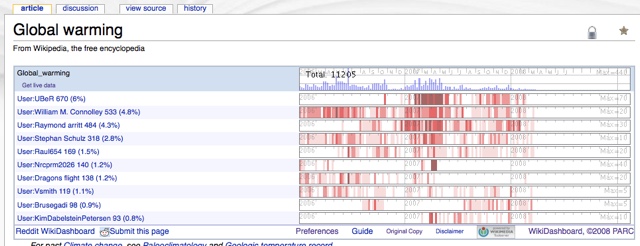Recently my email inbox has been filling up with messages from Twitter saying the “xxx has requested to follow you on Twitter”. This was mysterious because (a) in most cases I didn’t know the people allegedly making these requests; and (b) my Twitter updates are ‘protected’ — i.e. visible only to those I’m allowing to follow me. The solution to puzzle (a) is that most of these ‘requests’ are from people who hope I will visit their websites in order to check on their identities — so the requests are, in a way, a form of spam. (And, as such, doomed to fail.) I’m still slightly puzzled by (b). I guess people discover I’m on Twitter by finding me on someone else’s followed/following list. So the trick is to pick a Twitter ‘hub’ like Stephen Fry or Rory Cellan-Jones and then ransack his list for spam targets.
Digital Domain – Why Television Still Shines
Randall Stross thinks television is doing just fine as print media decline. “Television stands out”, he writes,
“as the one old-media business with surprising resilience. Though we are spending a record amount of time online, including a record amount of time watching video, we are also watching record amounts of very old-fashioned television, according to Nielsen Media Research. Our attachment to the medium, of course, is obscured by the splintering of our attention across so many cable offerings, in addition to the major networks.”
Hmmm… Note the reference to ‘splintering’. Broadcast TV — as distinct from narrowcast video — is a declining industry. I fear Professor Stross has missed the point of what’s going on. Just ask ITV.
The camera tree
Who’s Messing with Wikipedia?
This diagram summarises the editing activity on the wikipedia page about Global Warming. I produced it by running the entry through an intriguing new web service described by Technology Review.
Despite warnings from many high-school teachers and college professors, Wikipedia is one of the most-visited websites in the world (not to mention the biggest encyclopedia ever created). But even as Wikipedia’s popularity has grown, so has the debate over its trustworthiness. One of the most serious concerns remains the fact that its articles are written and edited by a hidden army of people with unknown interests and biases.
Ed Chi, a senior research scientist for augmented social cognition at the Palo Alto Research Center (PARC), and his colleagues have now created a tool, called WikiDashboard, that aims to reveal much of the normally hidden back-and-forth behind Wikipedia’s most controversial pages in order to help readers judge for themselves how suspect its contents might be.
Wikipedia already has procedures in place designed to alert readers to potential problems with an entry. For example, one of Wikipedia’s volunteer editors can review an article and tag it as ‘controversial’ or warn that it ‘needs sources.’ But in practice, Chi says, relatively few articles actually receive these tags. WikiDashboard instead offers a snapshot of the edits and re-edits, as well as the arguments and counterarguments that went into building each of Wikipedia’s many million pages.
This is a great idea.
The sound of serious money
This morning’s Observer column.
At this point, those of us who have been watching Mr Jobs strut his stuff for decades began to yawn. Then something happened that made your columnist sit up. On to the stage strode John Doerr, the driving force behind Kleiner Perkins Caufield and Byers of 2750 Sand Hill Road, Menlo Park, California – the world’s premier venture capital firm. Mr Doerr said that he was so taken by this apps store idea that he was setting up a $100m fund to invest in people who were interested in developing software for the iPhone.
In retrospect, it may have been a pivotal moment in the history of the computing industry. Doerr, you see, has great judgment and a long history of spotting winners before anyone else. Companies he backed in their early days, for example, include Amazon, Compaq, Electronic Arts, Google, Lotus, Macromedia and Sun Microsystems. So if he thought there was something in the apps store idea then perhaps Jobs’s hyperbole might be justified.
And so it has proved…
Installing OSX on an EEE PC 901/1000
If you like OS X but don’t want to lug round a heavy (and expensive) MacBook, well why not run the OS on an Asus 901? Here’s how.
Thanks to Stephen Heppell for the link.
Vermont, Old England
Winter scene with country house
From this afternoon’s walk. Flickr version here.
Snow dropping
In our garden, this afternoon. Plucky little flower. Flickr version here.
‘Digital Britain’ filleted for commenting

Here’s a terrific idea — a version of ‘Lord’ Carter’s Digital Britain Interim Report chunked in such a way as to make commenting easy. Find it here.
Warning: before reading some paragraphs of the Interim Report’s text (esp the stuff about IP protection) it might be wise to have a sick-bag handy. What you have to remember that this is a document composed mainly by guys who have been conditioned in the old push-media world. And who think that calling for universal 2mbps broadband coverage is an enlightened forward-looking vision.
(Interesting also that the image used on the Department of Culture Media and Sport’s website announcing the Interim Report — reproduced above — is a gif. Clearly IP madness runs deep.)





